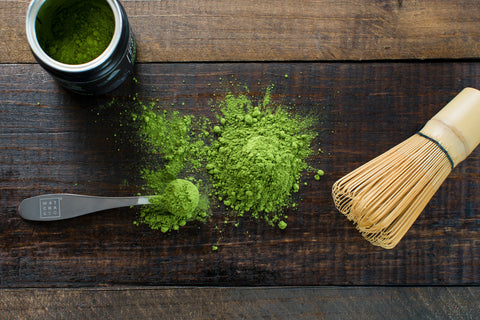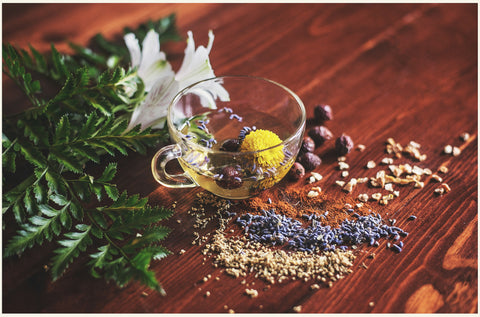Matcha tea, this bright green powder with a distinctive taste, has captured the hearts of tea lovers around the world. Originating from Japan, Matcha is not just a drink, but also a deep cultural experience, rich in history and tradition. In this article, let's dive into the fascinating world of Matcha tea, exploring its origins, the different types available and its multiple health benefits.
History and Origins of Matcha Tea
Matcha has its origins in Japan, where it has been cultivated and prepared for centuries. Its history dates back to the Tang Dynasty in China, when green tea was introduced to Japan by Buddhist monks. However, it was during the Kamakura period (1185-1333) that Matcha began to be cultivated and consumed in distinctive ways.
Japanese Zen monks played a crucial role in the development and popularization of Matcha. They incorporated this drink into their meditation practices, recognizing its invigorating effects on the body and mind. The process of growing, harvesting and finely grinding green tea leaves evolved over time, giving rise to the Japanese tea ceremony, a tradition celebrated for its beauty and simplicity.
The Different Types of Matcha
There are several varieties of Matcha, each offering subtle flavors and unique nutritional profiles. Here are some of the most common distinctions:
Usucha (Fine Matcha Tea):
This type of Matcha is prepared by whisking a small amount of Matcha powder with hot water using a bamboo whisk. It produces a light, frothy infusion, appreciated for its sweetness and delicate aroma.
Koicha (Thick Matcha Tea):
Koicha is a more concentrated variety of Matcha, using a greater amount of tea powder compared to water. It offers a more intense flavor and velvety texture, often enjoyed during more formal tea ceremonies.
Ceremonial vs. Culinary:
Ceremonial grade Matcha is intended to be consumed alone, showcasing its pure and refined flavor. On the other hand, Culinary Matcha is often used in cooking to add color and flavor to dishes, from smoothies to baked goods.
Health Benefits of Matcha Tea
Matcha tea is more than just a delicious drink; it is also packed with health benefits, thanks to its high content of antioxidants, nutrients and compounds beneficial to the body. Here are some of its notable advantages:
Rich in Antioxidants: Matcha is loaded with antioxidants, such as catechins, which help fight free radicals and protect cells from damage.
Improves Concentration and Mental Clarity: Thanks to its L-theanine content, Matcha promotes relaxation while improving concentration and mental alertness, thus providing a feeling of alert calm.
Supports Cardiovascular Health: Studies suggest that regular consumption of Matcha may help reduce the risk of heart disease by lowering LDL cholesterol levels and improving artery health.
Aids in Weight Management: Matcha can boost metabolism and promote fat burning, making it a valuable ally in weight loss efforts when combined with a healthy lifestyle.
Matcha tea is much more than just a drink. It is a tradition rooted in Japanese history and culture, offering a unique sensory experience and a multitude of health benefits. Whether you choose to enjoy a ceremonial bowl of Matcha or incorporate this vibrant green powder into your favorite recipes, let yourself be swept away by the magic of this exceptional beverage.
Discover Matcha tea on Baicha.ch



